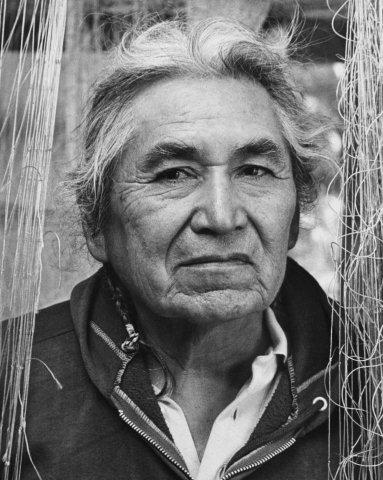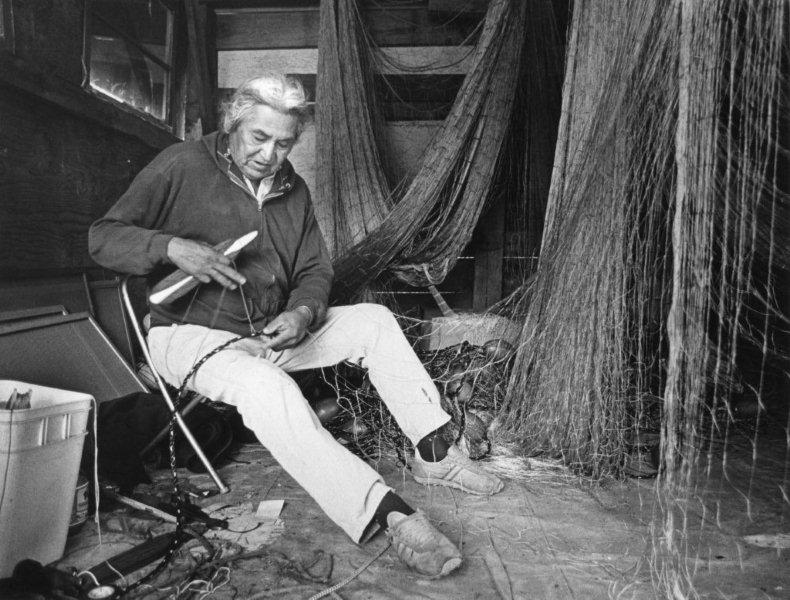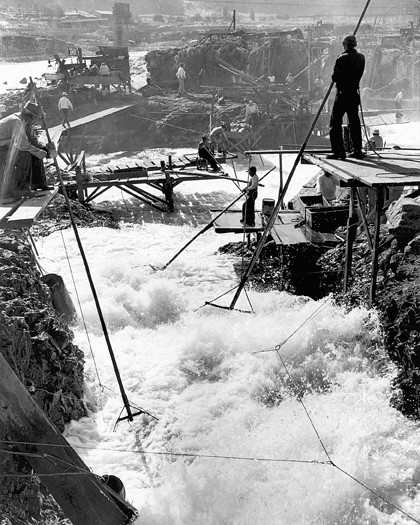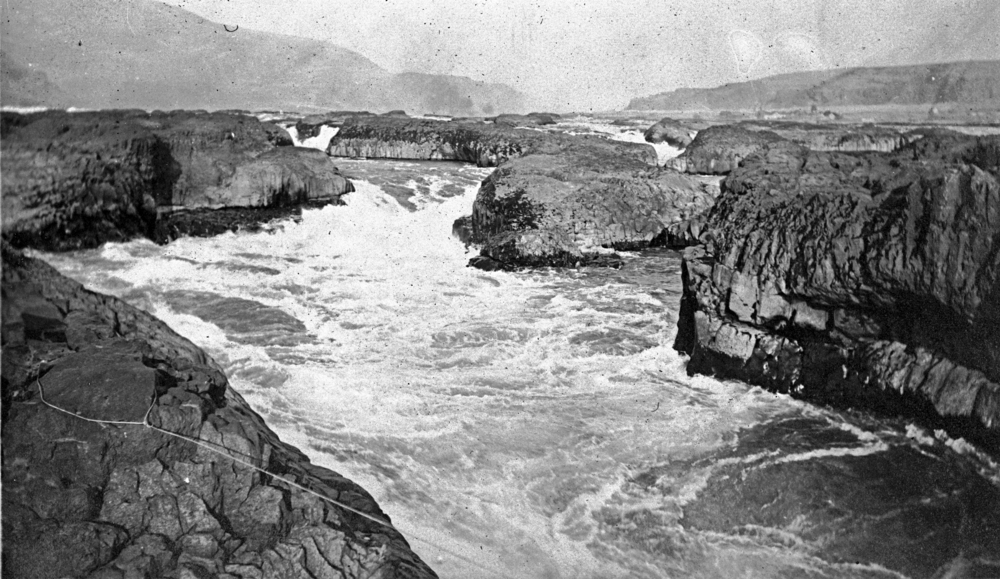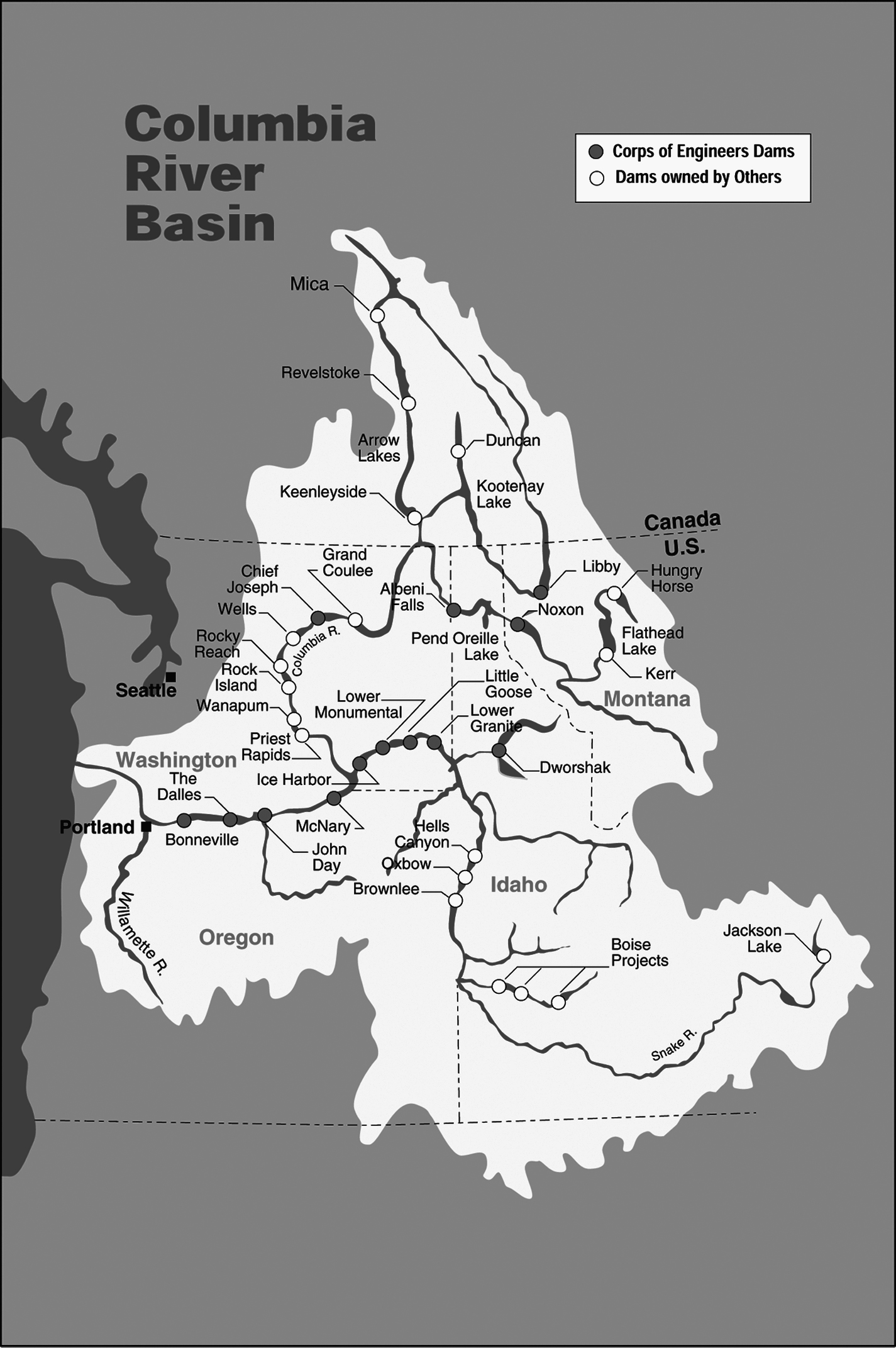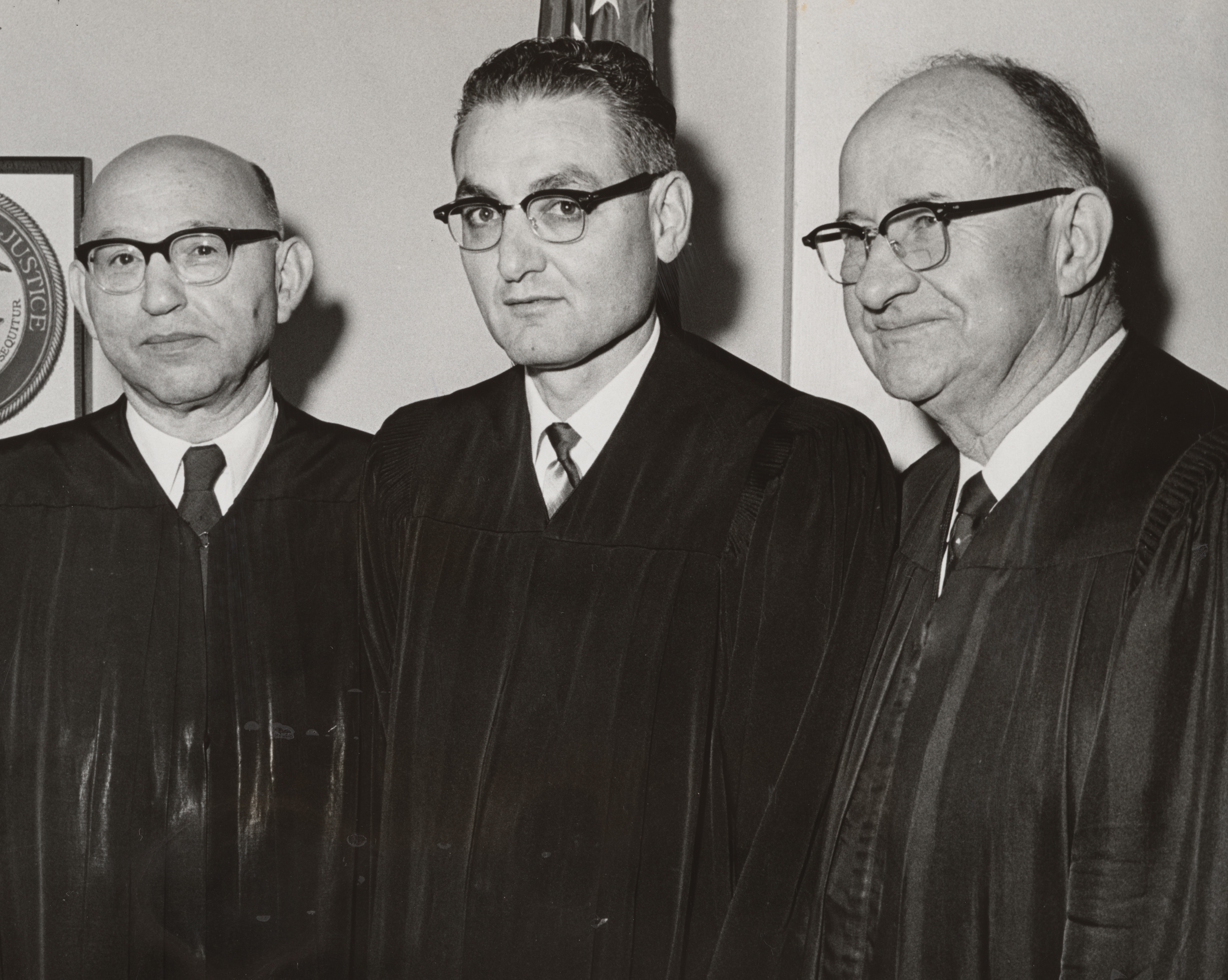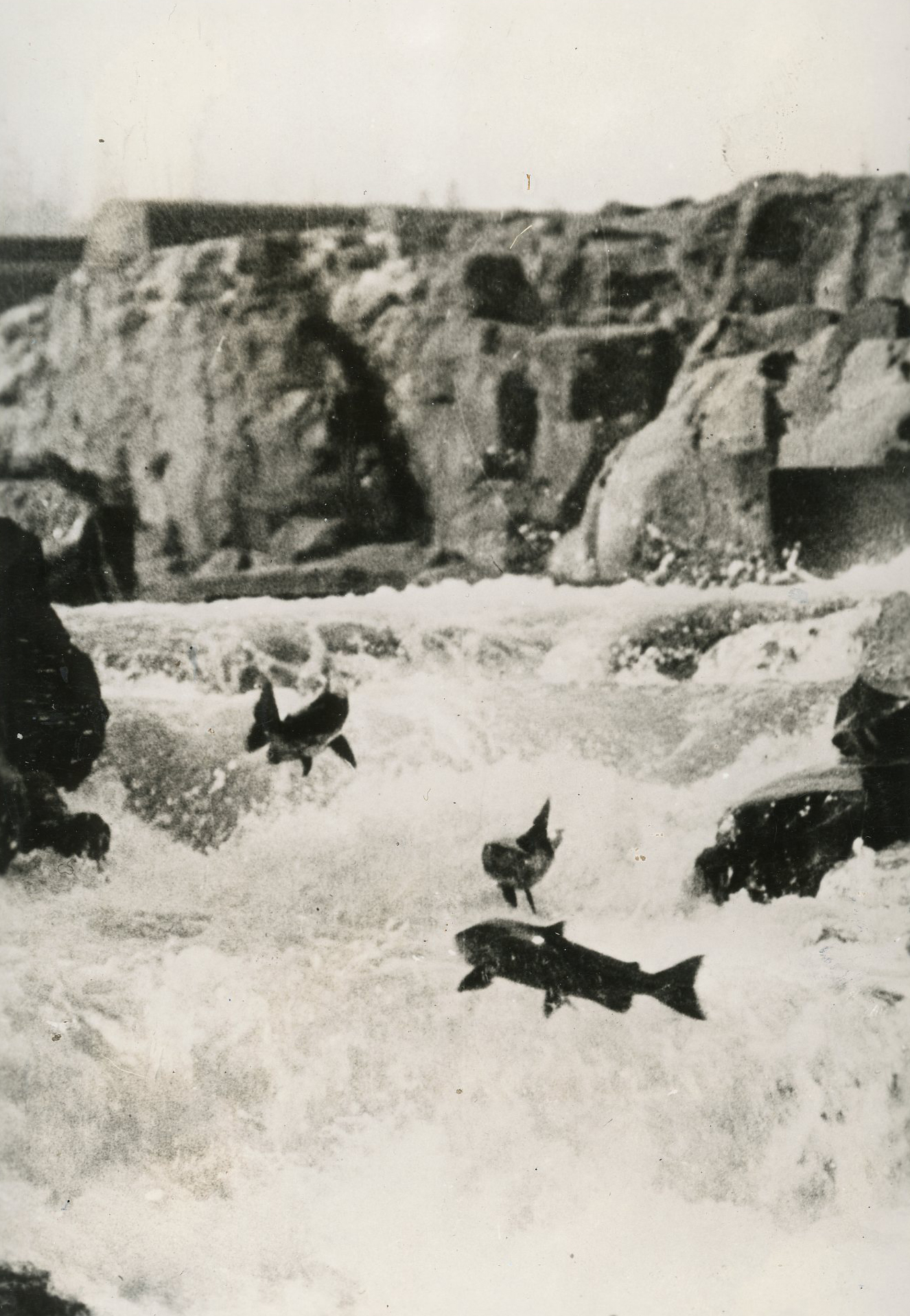Born and raised on the Yakama reservation in south-central Washington and a member of the Confederated Tribes and Bands of the Yakama Nation, David Sohappy began catching salmon at age five and spent much of each year along the Columbia River. "That is where I learned about Indian language and religion," he recalled. "I remember going to the longhouse from way back then, as my parents were firm believers in the Seven Drums or Washat religion." In 1965, Sohappy moved his family to Cook's Landing, an in-lieu fishing site built on the Columbia at the mouth of the Little White Salmon River to replace traditional locations flooded by Bonneville Dam. There they became embroiled in the growing controversy between the tribes and the states over off-reservation fishing rights.
By the mid-1960s, Oregon and Washington had been prosecuting tribal fishers for fifty years, claiming that treaty rights did not exempt Indians from state regulation. In 1968, tired of shouldering the burden of conservation and the blame for depleted salmon populations, David and Richard Sohappy and twelve others filed a lawsuit against Oregon Fish Commissioner McKee Smith to prevent further state interference with their rights under the 1855 Yakama treaty.
Sohappy v. Smith reached federal district court along with U.S. v. Oregon, a supporting action brought by the Justice Department. Judge Robert Belloni decided both cases in favor of the tribes, ruling that the states could regulate Indian fishing only when necessary for conservation, that they must guarantee the treaty tribes a "fair and equitable share" of the salmon runs, and that the tribes must be allowed meaningful participation in the rule-making process.
During the next two decades, however, Sohappy and other dissidents continued to ignore both state and tribal fishing ordinances that clashed with their spiritual beliefs. Consequently, in 1981 a federal-state sting operation—dubbed Salmonscam—netted him and his son David for selling fish caught with ceremonial use permits. Claiming that Indians had poached 40,000 salmon, federal agents prosecuted the Sohappys and seventeen others under the Lacey Act, which had recently been amended to make illegal fishing a felony. Although biologists soon found the "missing" fish in tributary streams, where they had been driven by pollution, the Sohappys each received the maximum sentence of five years for selling 345 salmon.
Meanwhile, the Bureau of Indian Affairs tried to evict the residents of Cook's Landing on the grounds that in-lieu fishing sites were not meant to serve as places of permanent residence. The Warm Springs and Yakama tribal councils also urged the occupants to leave, but they insisted that the treaties and their religion gave them the right to stay. In 1986, ten residents and a council of traditional chiefs sued to stop the evictions. Although the U.S. Court of Appeals ultimately upheld their position, David Sohappy Sr. did not live to see it. His health deteriorated even after he received parole in 1988, and he died on May 6, 1991, just five months before the case closed. He remains a hero to many tribal activists and environmentalists.
-
![]()
David Sohappy.
Courtesy Jacqueline Moreau
-
![]()
David Sohappy, Sr., during his trial for fishing illegally, April 1987..
Oreg. Hist. Soc. Research Lib., photo by Jacqueline Moreau, Max Gutierrez Coll., ba019091
-
![David Sohappy mending fish nets at Cook's Landing, Washington.]()
Sohappy, David, 1985.
David Sohappy mending fish nets at Cook's Landing, Washington. Courtesy Jacqueline Moreau, Special Collections, University of Oregon.
Related Entries
-
![Bonneville Dam]()
Bonneville Dam
The U.S. Army Corps of Engineers built and operated Bonneville Lock and…
-
![Celilo Fish Committee (1935 - 1957)]()
Celilo Fish Committee (1935 - 1957)
Members of Umatilla, Yakama, and Warm Springs tribes joined unenrolled …
-
![Columbia River]()
Columbia River
The River For more than ten millennia, the Columbia River has been the…
-
![Columbia River Inter-Tribal Fish Commission]()
Columbia River Inter-Tribal Fish Commission
The Columbia River Inter-Tribal Fish Commission (CRITFC) is the fishery…
-
![Columbia River Treaty (1964)]()
Columbia River Treaty (1964)
The high-voltage power lines that march across central Oregon, linking …
-
![Robert C. Belloni (1919–1999)]()
Robert C. Belloni (1919–1999)
Robert C. Belloni was a federal judge on the U.S. District Court for th…
-
![Salmon]()
Salmon
The word “salmon” originally referred to Atlantic salmon (Salmo salar),…
Related Historical Records
Map This on the Oregon History WayFinder
The Oregon History Wayfinder is an interactive map that identifies significant places, people, and events in Oregon history.
Further Reading
Columbia River Defense Project. In Defense of Che Wana: Fishing Rights on the Columbia River. Portland: The Wheel Press, 1987.
Dietrich, William. Northwest Passage: The Great Columbia River. New York: Simon & Schuster, 1995.
Dupris, Joseph C., Kathleen S. Hill, and William H. Rodgers, Jr. The Si'lailo Way: Indians, Salmon and Law on the Columbia River. Durham, N.C.: Carolina Academic Press, 2006.
Ulrich, Roberta. Empty Nets: Indians, Dams, and the Columbia River. Corvallis: Oregon State University Press, 1999.

